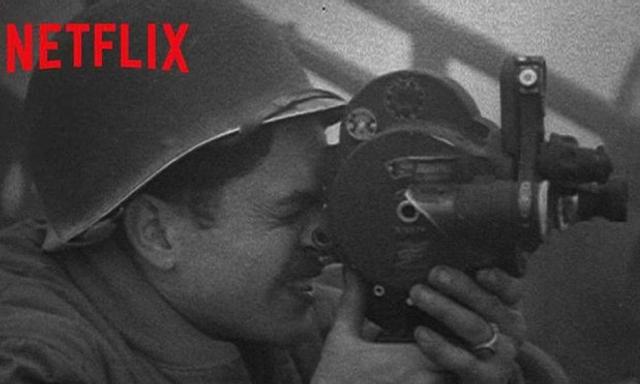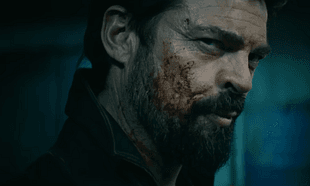World War II has been adapted across literature, film, television and other arts so many times over the years. One would think there are no more stories left to tell but new Netflix documentary series Five Came Back brings you into a lesser known side to the war and manages to stir up with zest those very feelings we go to the movies for – fascination and emotion.
Based on Mark Harris's book, the three part series chronicles how five great directors brought the war efforts to American civilians by going to the front and making films. The incredible stories of John Ford, William Wyler, Frank Capra, George Stevens and John Huston are told from the perspective of their inspired contemporaries, themselves masters of the medium – Steven Spielberg (who also executive produces the series), Paul Greengrass, Guillermo del Toro, Francis Ford Coppola and Lawrence Kasdan.
There’s an infectious joy in watching these modern masters speak about the directors that preceded them with such enthusiasm, admiration and insight. They provide a deeply personal account of how the directors inspired them and led the way for their own career, for example, Spielberg speaks of Wyler’s fears during the war on account of him being a Jew, while del Toro relates to Capra having to deal with prejudice on account of being an Italian immigrant. Each modern director takes one of the past directors as their focal point and there is a good balance between all five in terms of screen time. Moreover, the editing and voiceover work moves smoothly from the perspective of one story to the next, with a kinetic energy that makes it a challenge to ever want to put the series on hold.

Five Came Back is a testament to the power of the film and is completely captivating. We learn of America’s hesitance to join the war initially and are exposed to some truly incredible archival footage. We witness the incredible stories of these individuals and learn what occurred behind the scenes of the works of art they produced, for example, the segment on Ford’s The Battle of Midway, which provides the finale to the first episode of the series, is quite extraordinary. What Netflix has also done, which is very clever, is it has made the core films made by the five filmmakers also available on the platform. Viewers can thus watch these films alongside the doc series with a newfound sense of awareness and respect.
There are so many layers to Five Came Back, for example, we view the psychological effects on the war on the directors as well. It explores the nature of proganda, how it withholds certain truths, and questions the tricky balance between fiction and truth when it comes to documentary-filmmaking. It asks tough questions like can entertainment also motivate? Is the truth as black and white as the pictures? How much should people be shown, or, perhaps more to the point, how much reality do people want to see?

If that doesn’t sell it to you, they also have Meryl Streep as narrator. As always, she is perfect and knows exactly what to do in the role, providing a far more introvert, held-back quality to her voice than you would expect or recognise that fits perfectly into the film’s diegesis, for this is a movie about these five filmmakers and about war, and she decidedly uses her voice as a means to tell the story and not to exhibit the fact that it’s Meryl Streep narrating a series.
The series utilises is an astounding amount and variety of archival, film and interview footage. It moves at such an efficient pace that the only very small criticism for it would be that it sometimes moves a little too fast, if you can believe it. Additionally, as easy as it is to binge on, you might want to take a breather in between episodes two and three, not only because you’ve just watched over 2 hours of war footage (each episode being approximately an hour long) but also because part three gets very dark as it goes into the discovery of the Holocaust. But stick with it as after the final events of the war, this episode reflects on the careers of these directors after the war and how they went on to produce some of their best work, the classics we know and love like It’s a Wonderful Life, The Searchers, Shane and Ben-Hur, all undoubtedly and remarkably shaped by what the directors went through.
Netflix may not be too successful with original films yet, but given the standard in television series and documentary – Five Came Back combining the two to perfection – it has produced and continues to, we have a lot to be happy about.









































































